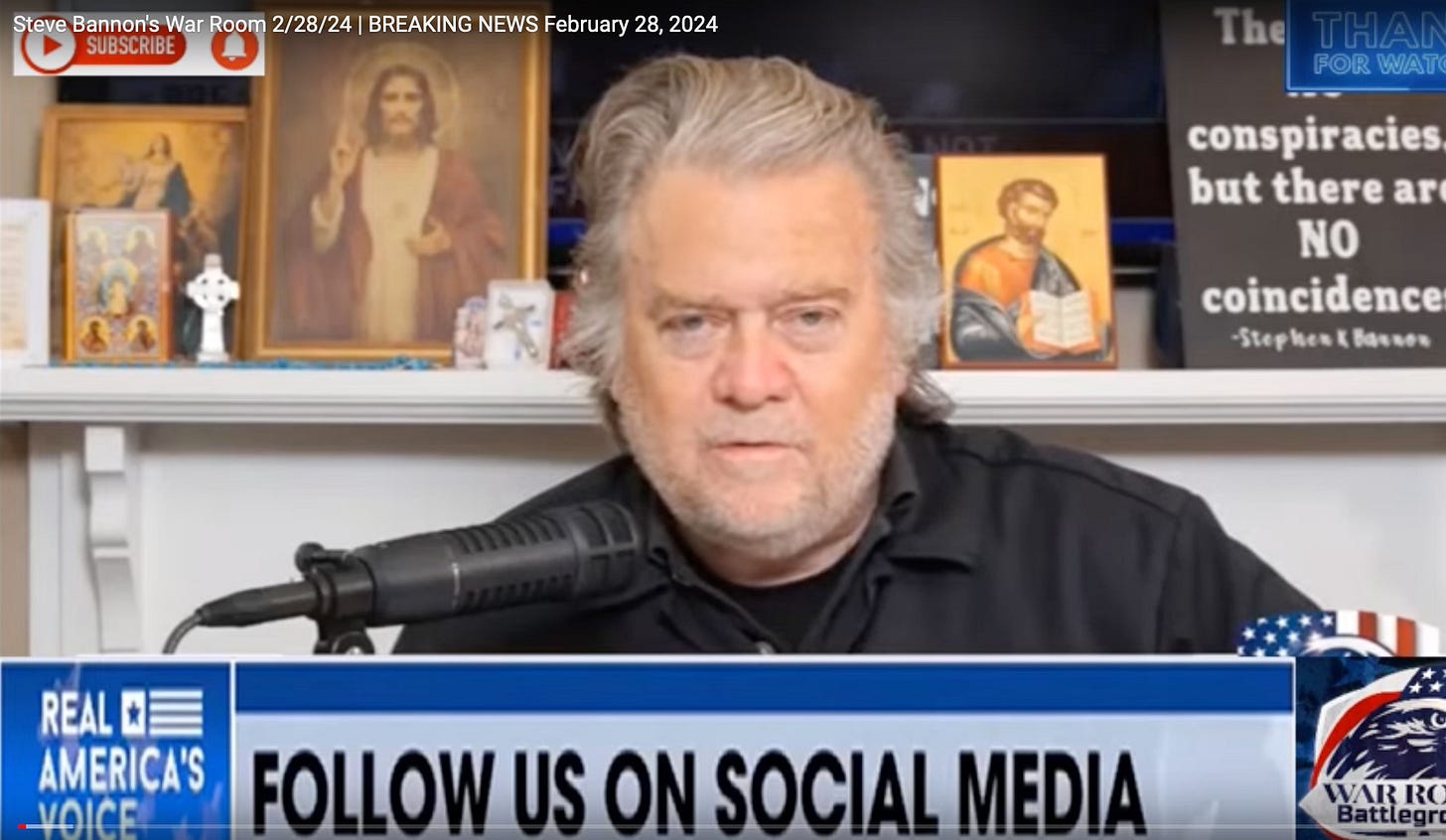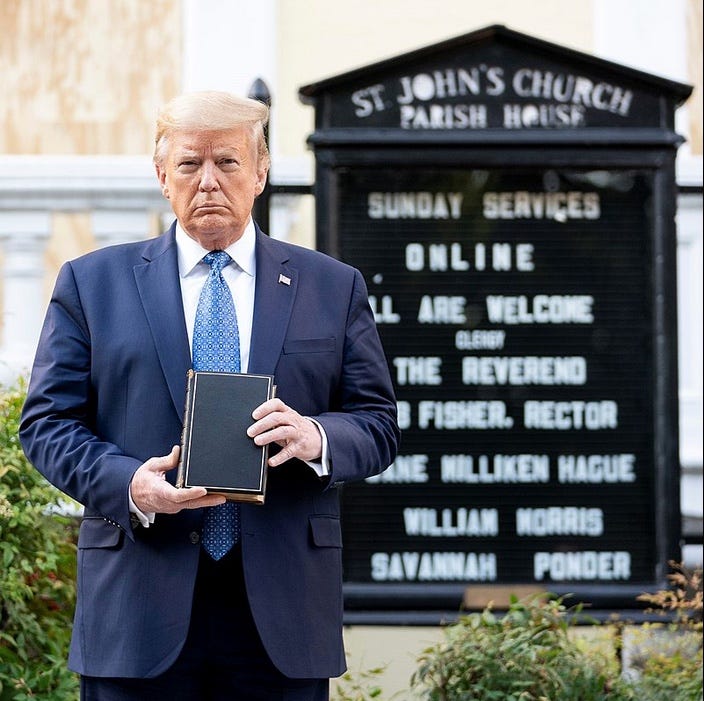Vortex of the patriarchy
March 2, 2024
Winter range in lower Grand Coulee
Revelation
A problem with epiphanies is they’re impossible to schedule.
My first arrived in a junior high classroom. There were no desks, just laboratory tables with chairs where we sat in twos or threes for both science and “home room,” when we were allowed to visit, do homework, and play the games that seventh graders played in the decades before handheld electronics. I was very Catholic at the time because I was born into Catholicism and versed in its rituals. This was also true of the girls sitting behind me, Catholic girls; Catholic girls talking about an abortion that someone they all knew—someone our age—had undergone.
I was affected both by what they were saying and how they were saying it. They were angry and contemptuous, so much so that I was dazed at what I was hearing. What I heard left the room with me and has never quite washed off. It forced me to question my church’s teaching. What I’d learned is that abortion was wrong because the church said so. The century-old edict carried the weight of excommunication for those abetting the act. There was no margin for empathy, let alone discussion. I struggled to imagine one of my sisters being violated and forced, by the church or the state, to endure a resulting pregnancy. I struggled to imagine a sister being judged so brutally if she chose to have an abortion and somehow succeeded.
There were other ways in which my faith unraveled over time. But the church’s iron-clad tenets on abortion and birth control (and its ban on women in the priesthood) were high on the list of reasons I ultimately, and literally, walked out of the church when I was 25.
This is not an easy piece to write, and I do so with respect not just for practicing Catholics but for the choices others have made to join faith communities or remain committed to the religious traditions in which they were raised. I believe in freedom of religion up to the point at which it infringes upon the rights and freedoms of others. I also expect that when people gather in community we should do so without coercing others to believe as we believe and punishing or marginalizing them if they do not.
Witness thy father
At the time I overheard the emotional conversation among my Catholic schoolmates my father was the head of the science department at the same school. Evolution was part of the curriculum, and it was part of what he taught, without apology. I well remember a day—I believe it was the same year—that one of our parish’s Catholic priests filled in for the nun who usually led our Sunday school class. The priest was visibly agitated. He was deeply upset that we were being taught evolution in public school, and he railed against those who were teaching it.
In most ways my father came off the same post-war assembly line that inspired Dan Lauria’s father-character in the original The Wonder Years television series (1988-1993). He rarely spoke about the pressures of his work and didn’t speak at all about how he received the criticism aimed at him by his own church over his teaching sex education and evolution. I don’t think he felt obliged to explain how he could be a devout Christian and a public servant and patriot. He just went about doing it.
After he died in 2017 I found a cache of his letters from that period, including correspondence with his mentor, the school’s principal, who was a venerable leader in our local Jewish community. The notes and letters revealed a rich and deeply respectful friendship. They understood their roles not just within an educational system but within a society where people could worship as they pleased while shaping and sharing the leveling shelter of a secular democracy.
Trump backer and former White House communications advisor Steve Bannon at his crucifix-heavy “War Room” studio.
The “Retribution” revolution
Fast forward a half century to today and there’s a perilous warp in that compact, one that needs to be called out and confronted. It’s one that propagates under a movement known as “Christian Nationalism” or “White Christian Nationalism” that is cultivated in the same political and cultural soil as the Trumpian/MAGA phenomenon. It’s a realm that certainly includes Spokane, eastern Washington and northern Idaho dating back to the infamous Aryan Nations compound (1973-2000) north of Coeur d’Alene.
Christian Nationalism is a concerted movement to evangelize politics so as to impose religious edicts upon society at large. This includes efforts to legally codify that human life begins at conception (rather than birth, as in the Jewish tradition, for example), strategies to make it harder for African-Americans to vote and efforts to marginalize LGBTQ individuals and undermine the legal recognition of same sex marriage.
It matters that some of the more vigorous warnings about the rise of this movement and its pairing with the Trumpian base of Republican Party come from inside the largely white, Protestant evangelical community. (The largely Protestant Christian Nationalist movement parallels an aggressive corps brewed in Catholicism by the likes of Trump’s long-time advisor/promoter Steve Bannon who prominently displays Christian paraphernalia on his War Room webcasts.)
“The problem with Christian nationalism isn’t with Christian participation in politics but rather the belief that there should be Christian primacy in politics and law,” writes columnist David French, a devoted, evangelical Christian who lives in rural Tennessee. “It can manifest itself through ideology, identity and emotion. And if it were to take hold, it would both upend our Constitution and fracture our society.”
French is one of the voices sounding alarms about Christian Nationalism in a new documentary, God & Country directed by film maker Dan Partland and produced by Rob Reiner. Other voices in the film include those of prominent Southern Baptist minister Russell Moore and Sister Simone Campbell, a Catholic nun who came to prominence a decade ago as one of the “Nuns on a Bus” activists campaigning for social justice. The documentary is rooted in the work of journalist Katherine Stewart, author of The Power Worshippers, Inside the Dangerous Rise of Religious Nationalism.
In French’s column from a week ago he emphasizes what I would underscore as well: there is nothing sinister about people of faith bringing their ideas and beliefs into the public spheres of society. I certainly do. What undermines the essential compact of democracy is to arrive with the unwavering desire to impose one’s beliefs upon others and being unwilling to accept anything short of that. I think Christ would agree, given his teaching to “do unto others as you would have done unto you”—commonly referred to as “the golden rule” of the New Testament.
Then-President Donald Trump posing with Bible in front of a Washington D.C. church during protests of George Floyd’s death at the hands of police. June 1, 2020.
“God created government”
Christian Nationalism aligns with a growing sentiment within the Trumpian MAGA movement that democracy is merely a means to an end, and that the end is an autocracy that can impose outcomes by decree and place them out of reach of any vestigial democratic process.
A good example is the most recent one—a decision by the Christian Nationalist, white-male majority of the Alabama Supreme Court two weeks ago (LePage et al v. Center for Reproductive Medicine) that has had the effect of suspending in-vitro fertilization (IVF) in Alabama. Here all the pieces of the movement seemed to fall into place—an elected state supreme court majority that unabashedly invoked religion as the basis for finding that the damage or disposal of IVF embryos is the taking of human life and punishable as such. (In practice, IVF often involves the creation and implantation of more than one embryo at a time, with unused or genetically damaged embryos being discarded. On its face, the Alabama court’s ruling in LePage criminalizes such disposals.)
“Human life cannot be wrongfully destroyed without incurring the wrath of a holy God,” wrote the court’s chief justice, Tom Parker in a concurring opinion in the case. He invoked Genesis, writing: “The principle itself — that human life is fundamentally distinct from other forms of life and cannot be taken intentionally without justification — has deep roots that reach back to the creation of man ‘in the image of God.’”
A few days later Parker told an interviewer he was in support of the so-called Seven Mountains Mandate that asserts Christian dominance over the breadth of society.
“God created government, and the fact that we have let it go into the possession of others, it’s heartbreaking,” Parker said.
“The problem with Christian nationalism isn’t with Christian participation in politics but rather the belief that there should be Christian primacy in politics and law. It can manifest itself through ideology, identity and emotion. And if it were to take hold, it would both upend our Constitution and fracture our society.”—David French
It doesn’t take a constitutional scholar to see the collision between Parker’s views and the establishment clause of the First Amendment: “Congress shall make no law respecting an establishment of religion, or prohibiting the free exercise thereof..”
In real-life, the consequences of Parker’s religion-derived view—and that of his colleagues on the Alabama supreme court—drew a backlash that extends well beyond the state and across a nation where more than 8 million people already owe their lives to IVF procedures.
The broader context is that the Alabama law in which the new ruling is rooted couldn’t be invoked while the U.S. Supreme Court’s decision in Roe v. Wade (1973) was in effect. When the court overturned Roe with the Dobbs v. Jackson Women’s Health Organization decision in 2022, Alabama is one of thirteen states (including Idaho) whose pre-Roe abortion bans sprung back into effect.
The backlash to the Alabama supreme court’s ruling in LePage will almost certainly reinforce the unpopularity of the Dobbs decision with its predictably horrifying effects in states like Texas. In December the Texas attorney general, Ken Paxton, threatened to criminally prosecute physicians if they became involved in trying to assist Kate Cox, a Texas woman who faced serious health consequences in carrying a non-viable pregnancy. She ultimately had to travel to New Mexico to have her pregnancy aborted.
It’s hard to miss the performative cruelty of the Kate Cox case and how it epitomizes the cultural “retribution” Trump promised when he launched his campaign to reclaim the Presidency at a rally in Waco, Texas. “I am your warrior, I am your justice,” he pledged.
The irony, of course, is that Trump is not a church-goer himself, except when a church is a useful photo-prop to show his solidarity with Christian evangelicals and stoke their grievances with secular democracy. He openly reminds them, and us, that it is he who deserves credit for the repeal of Roe v. Wade because he was willing to stack the U.S. Supreme Court with justices hostile to abortion rights.
The subtext of this is hard to ignore: a movement of fundamentalist Christians, stoked on grievance, not out to win hearts and minds but to impose its will by seizing control of government and the courts. It is a minority movement, but one that may complete its ascent by the ways in which it has already altered the American political terrain through idolatry (Trump) gerrymandering, voter suppression, and purposeful disinformation.
If Christ were amongst us today, he would preach against it.
—tjc









